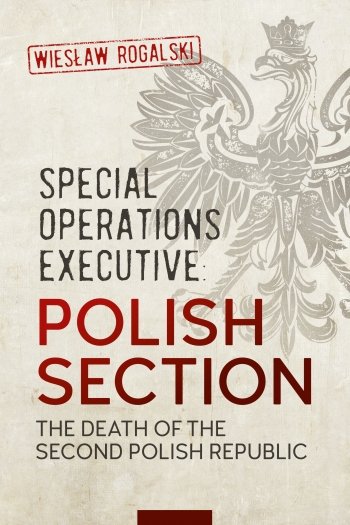-
Załączniki bezpieczeństwa
Załczniki do produktuZałączniki dotyczące bezpieczeństwa produktu zawierają informacje o opakowaniu produktu i mogą dostarczać kluczowych informacji dotyczących bezpieczeństwa konkretnego produktu
-
Informacje o producencie
Informacje o producencieInformacje dotyczące produktu obejmują adres i powiązane dane producenta produktu.HELION
-
Osoba odpowiedzialna w UE
Osoba odpowiedzialna w UEPodmiot gospodarczy z siedzibą w UE zapewniający zgodność produktu z wymaganymi przepisami.
The primary aim of Special Operations Executive: Polish Section is to ascertain the ultimate effectiveness of SOE assistance provided to the Second Polish Republic during the Second World War. The first chapter examines early contacts made between British and Polish military authorities following the signing of the pact of mutual assistance between the two countries in 1939. The second chapter analyses certain issues pertaining to the Polish forces prior to the opening of conflict, namely the shortages of modern equipment, military know-how and a defensive plan. Chapter three looks at the Polish defensive war, its failure and the consequences of defeat. The narrative then follows the retreat of the Polish Government together with remnants of the Polish forces to France and then to Britain. This is followed by an examination of the nascent underground resistance movement. The subsequent chapter looks SOE origins and the establishment of SOE Polish Section, focusing on the unique relationship that developed between the Poles and the Polish Section. It considers the training of Polish Special Forces in Britain by SOE and their subsequent parachuting deep behind enemy lines in Poland. The difficulties surrounding the establishment of an effective air bridge between the West and occupied Poland and how ensuing problems were overcome is also considered. Events drastically change when the Soviet Union joins the western allies after Operation Barbarossa. This precipitated a significant adjustment in the relationship between the Polish Section, Prime Minister Winston Churchill and the Poles. The difficulty being Moscow’s policy to dismantle the Second Republic in favour of a communist People’s Republic of Poland after the war. The conundrum for London was how to continue championing the Second Republic authorities exiled in London, whilst at the same time supporting the Soviet campaign on the Eastern Front. Thus, as the war progressed, Britain could not bring itself to alienate Moscow.








